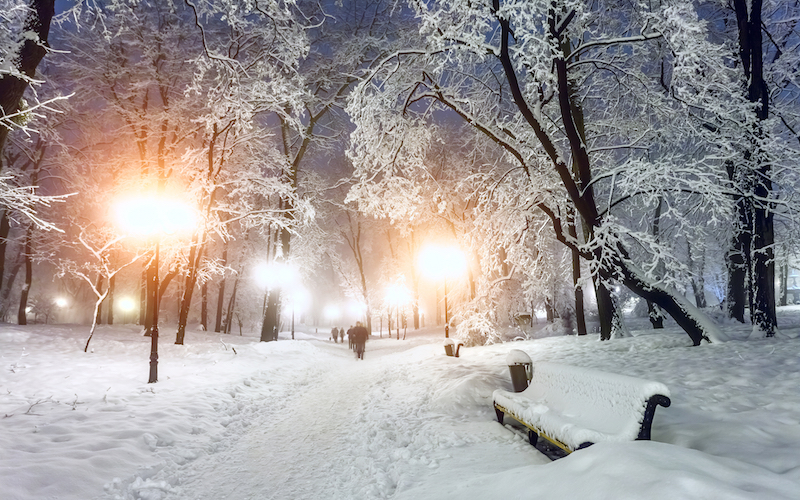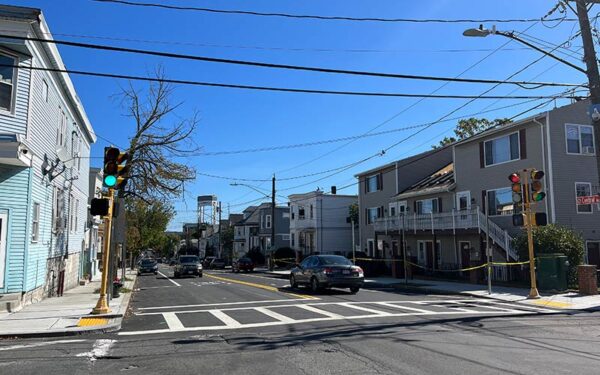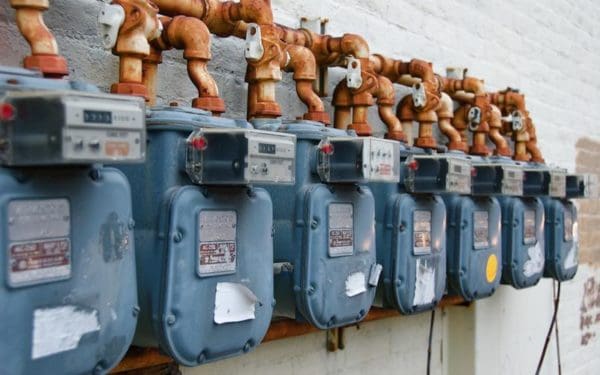
We have enough power to keep the lights and heat on during winter cold snaps, without spending money on a new fracked gas pipeline. Photo Credit: Shutterstock
It’s hardly news that temperatures in New England drop below freezing in winter. While we bundle up the kids, shiver at the bus stop, and fire up the snow-blower, our regional energy grid operator is busy doing the careful work of making sure we all have enough power to both heat our homes and keep the lights on. It’s a balancing act, but one the grid operator is well prepared for. It’s their job, after all. They’ve been planning for frigid winters for years – and for years, they’ve done it perfectly well.
This hasn’t stopped the annual chorus from the fracked gas industry and its allies, though. Every winter, their calls for a big new expensive pipeline into New England echo through state houses and pop up in newspaper editorials. They use fear tactics like claiming we’ll be hit with rolling blackouts to try to scare us into paying for a massive pipeline we don’t need.
But as CLF has long argued, we have plenty of fuel to get through even the coldest winters unscathed, without footing the bill for a polluting new pipeline. And on top of that, if we want to avoid the most devastating effects of climate change, we must stop using dirty fuels like gas altogether – not deepen our dependence on them.
We Have the Resources to Deal with Cold Snaps
In fact, after a series of brutal temperature swings last winter, our grid operator, ISO New England, alongside New England power generators, made sure additional energy was on hand for when the cold struck this year. In January, when temperatures plummeted, we had a small amount of liquified natural gas (LNG) ready to go, which allowed utilities to keep the lights and heat on without burning dirty oil as they have in the past. This kept energy prices low and ensured we would not run out of power.
This also proved a point that CLF has been making for years: New England doesn’t need a new fracked gas pipeline. Instead, we must continue scaling up clean energy resources like solar and wind. In the meantime, by maximizing the infrastructure we already have (including through reserves of LNG) we’ll be covered on those few coldest days of the year. This will save all New Englanders money, rather than saddling us with the bill for a multi-billion-dollar pipeline that will become obsolete within a few years.
The only reason people even worry about energy during the winter is because we rely on gas to both heat and power our homes. And while Big Gas uses this as an excuse to call for an expensive new pipeline (they want to rake in higher profits, after all), it should be seen as yet another reason to move away from gas and toward local, clean resources that will make our energy grid more secure.
Our Next Push Must Be Clean Energy
Building up clean energy will save families and businesses money – and create good local jobs at the same time. But even more importantly, it will help preserve our way of life. New England is already feeling the effects of climate change, from violent storms flooding entire neighborhoods, to warming ocean waters threatening fishermen’s livelihoods, to milder winters impacting our ski and snowmobile industries. Climate change is here now and only getting worse, putting our health, our economy, and our future at risk.
But we can fight back.
As recent reports from the United Nation’s Intergovernmental Panel on Climate Change and the U.S. federal government show, to avoid catastrophic climate impacts we must slash climate-damaging emissions to zero by 2050. That means ditching dirty fuels like fracked gas and boosting clean energy like solar and wind. It means no more gas plants, no more pipelines, and no more propping up old, uneconomical carbon-polluting power plants.
Instead, we must focus on building up the burgeoning offshore wind industry. We must invest in electric cars and trucks. We must promote lower-carbon hydro power like the Clean Energy Connect project. And we must demand that our elected officials enact proactive climate laws.
Together, these measures can help carry us through to a future that doesn’t rely on dirty fuels like oil and gas, where carbon pollution has been curbed and the most catastrophic climate impacts averted. As New Englanders, we know how to deal with the cold. Now let’s focus on the bigger challenge in front of us: climate change.
Sign up for CLF’s email list to receive heads up when important votes are happening and to learn how to make your voice heard.


